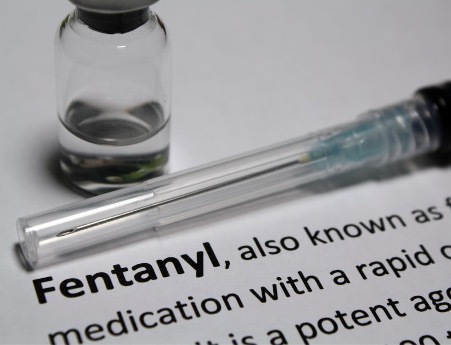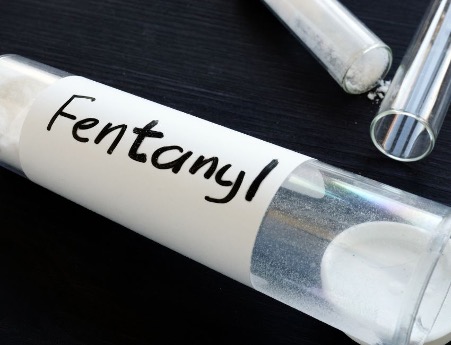The US Fentanyl Overdose Crisis: What You Need to Know

Table of Contents
What You Need to Know About The US Fentanyl Overdose Crisis
It’s no secret that the United States is currently in the throes of an opioid overdose crisis. What may be less well known, however, is that one particular drug is largely to blame for this epidemic: fentanyl. In this article, we will explore what fentanyl is, how it works, and why it has become such a problem.
What is Fentanyl?
So, what exactly is fentanyl? It’s a powerful synthetic opioid painkiller that is up to a hundred times more powerful than morphine. It is typically prescribed for patients who are dealing with severe pain, such as cancer patients. However, because of its high potency, fentanyl is also often abused.
When taken as prescribed, fentanyl can be a safe and effective painkiller. However, because it is so potent, even a small error in dosage can be dangerous. Furthermore, because fentanyl is often sold on the illegal drug market, there is no way to be sure of its purity or potency. This makes taking it even riskier.
How Does Fentanyl Work?
Fentanyl works by binding to opioid receptors in the brain. This action alters the way the brain perceives pain and can produce a feeling of euphoria. These effects make fentanyl both an effective painkiller and a popular recreational drug.
Why is Fentanyl a Problem?
Fentanyl is such a problem for a number of reasons.
• It is incredibly potent: It’s estimated that just two milligrams of fentanyl, which is about the size of a few grains of salt, can be lethal. And because it is so powerful, it is easy to accidentally take too much.
• It is often mixed with other drugs: Fentanyl is often sold mixed with other drugs, such as heroin or cocaine. This makes it even more difficult to know how potent the final mixture will be, further increasing the risk of overdose.
• It is cheap and easy to produce: Fentanyl can be produced in a lab relatively cheaply and easily. This has led to a proliferation of illegal fentanyl labs, both in the United States and abroad.
• It is often used to cut other drugs: Because it is so potent, dealers will often mix fentanyl with other, weaker drugs in order to make them go further. This means that people who are using drugs such as heroin or cocaine may be inadvertently taking fentanyl as well.
What Are the Symptoms of a Fentanyl Overdose?
The symptoms of a fentanyl overdose can include:
• Slow or shallow breathing: When someone overdoses on fentanyl, their breathing will slow down or become shallower. This can lead to a lack of oxygen in the brain, which can cause brain damage.
• Drowsiness: A person who has overdosed on fentanyl may seem very drowsy and may even fall asleep. It’s important to note that they may not be able to be awakened, and may not be breathing.
• Confusion: A person who has overdosed on fentanyl may seem confused and disoriented. They may have trouble speaking or understanding what is happening around them.
• Cold, clammy skin: Your skin may feel cold and clammy to the touch if you have overdosed on fentanyl. This is due to a drop in blood pressure and a decrease in heart rate.
• Small pupils: The pupils of someone who has overdosed on fentanyl will be much smaller than normal. This is another sign of decreased blood flow and oxygen levels in the brain.
• Loss of consciousness: A person who has overdosed on fentanyl may lose consciousness. This is extremely dangerous, as they will not be able to breathe and may need immediate medical attention.
If you think someone has overdosed on fentanyl, it is important to call 911 immediately. Fentanyl overdoses can be incredibly dangerous and even life-threatening.
How is Fentanyl Tested For?

If you are concerned that someone you know may be using fentanyl, there are a few ways to test for it.
- Urine tests: Urine tests can detect the presence of fentanyl and other drugs in the body. However, they cannot tell how much of the drug is present or how long ago it was used.
- Blood tests: Blood tests can also detect the presence of fentanyl and other drugs in the body. However, they are not as common as urine tests and may not be as accurate.
- Hair tests: Hair tests can be used to detect the presence of fentanyl and other drugs in the body. This type of test is more expensive and not as common as urine or blood tests.
What to Do If Your Loved One is Using Fentanyl?
If you think your loved one is using fentanyl, it’s important to get them help as soon as possible. Fentanyl addiction is a serious problem that can lead to overdose and death. There are a number of resources available to help people who are struggling with fentanyl addiction, including:
- Rehabilitation facilities: There are a number of rehabilitation facilities that can help people who are addicted to fentanyl. These facilities will provide counseling and support to help people overcome their addictions.
- 12-step programs: There are a number of 12-step programs, such as Narcotics Anonymous, that can help people who are struggling with addiction. These programs provide support and guidance from other people who have been through addiction.
- Therapists: Therapists can help people who are struggling with addiction to fentanyl. They can provide counseling and support to help people overcome their addictions.
If you think your loved one is using fentanyl, don’t hesitate to get them help. Fentanyl addiction is a serious problem that can have deadly consequences. There are a number of resources available to help people who are struggling with addiction, so don’t hesitate to reach out for help.
Need help with Fentanyl Addiction? Let House of Freedom Help
If you or someone you know is struggling with fentanyl addiction, House of Freedom can help. We are a Florida-based rehabilitation facility that specializes in treating addiction. We offer a variety of programs and services to help people overcome their addictions and get on the road to recovery.
At House of Freedom, we are equipped with the expertise and the tools required to guide people struggling with substance abuse. Our state-of-the-art, modern drug rehabilitation center offers both inpatient and outpatient services to help you or your loved ones overcome addiction.
For more information about our program, contact us today at 407-957-9077 or visit our website.
